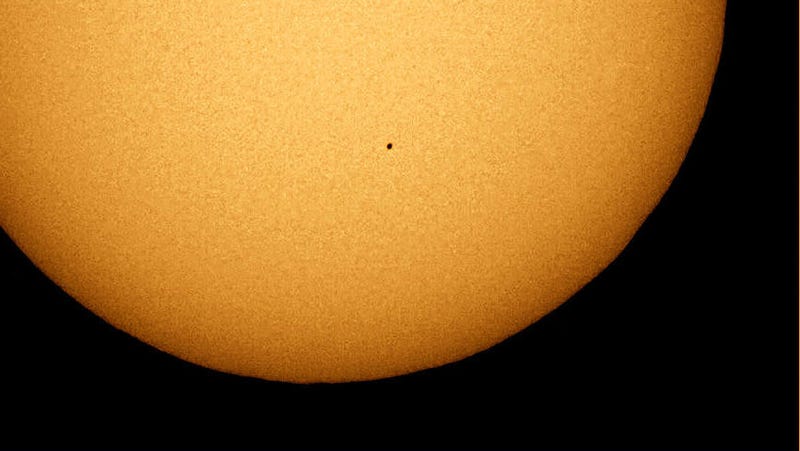#Mercury #NASA #Sun #Astronomy
Mercury will transit the Sun for the first time since 2016 this coming Monday. It won’t do so again until 2032.
The smallest planet’s eccentric orbit means it doesn’t often pass in front of the Sun from Earth’s vantage point. This year, part of the 5.5-hour transit will be visible to much of North America starting at 7:36 a.m. ET. The eastern half of North America and all of South America will see the whole show, which will last until 1:04 p.m. ET. Africa, Europe, and western Asia will be able to see it at Monday’s sunset.
How can you see it? Well, I’d advise against staring directly into the Sun and even more strongly against staring into the Sun through binoculars or a telescope. Instead, it’s best to use a telescope with a solar filter, through which the transit will look like a small black speck passing in front of the Sun, which will appear 194 times larger than the speck. If you don’t have those tools, check if a local astronomy club will be hosting a public viewing. The Virtual Telescope Project will have a viewing on its website.
Transits occur when planets come between us and the Sun, meaning that only two planets can transit: Venus and Mercury. Witnessing a transit is all a matter of timing. Transits of Venus occur in pairs separated by 121.5 or 105.5 years, with eight years separating each transit; the next transit of Venus will occur in the year 2117. Transits of Mercury are far more frequent, since the planet travels on a smaller orbit around the Sun.
Mercury transits have long been useful tools for scientists. Back in the 17th century, astronomers observed transits of Mercury to try to determine the distance between the Earth and Sun using parallax—observing the transit from two different places on Earth, as National Radio Astronomy Observatory astronomer Brian Koberlein wrote for Forbes. One team used the transits to indirectly calculate the effect of tidal forces of the Moon on Earth. More recently, one team of scientists used a transit to see whether it would produce a discernible decrease in the amount of sunlight (it did not). That knowledge is valuable to astronomers hoping to use the transit method to spot exoplanets around distant stars.
Hopefully, you’ll have an opportunity to watch the transit on Monday. But remember, don’t look directly at Mr. Sun
By Ryan F. Mandelbaum


Comments
Post a Comment